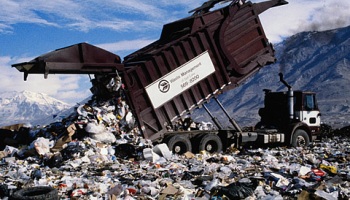Ghana continues to be the de facto dumping ground for the western world’s toxic electrical waste, putting local children at serious risk of brain and kidney damage, respiratory illness, developmental and behavioural disorders, and even cancer.
An Environmental Investigation Agency report published earlier this year revealed that large numbers of broken television sets deposited at one of the UK’s leading waste and recycling companies, Environment Waste Controls (EWC), had been illegally dumped in Nigeria and Ghana by a third party company.
Around the same time, a BBC Panorama programme turned the spotlight on the Agbogbloshie slum outside Ghana’s capital city of Accra, where the landscape is dominated by mountains of discarded electrical equipment shipped over from the United States and Europe. Local children spend their days in this dangerous environment, searching for scraps of copper and aluminium that they can sell.
Toxic chemicals, choking fumes
Children break open the plastic casing of TVs and computers to expose the copper wiring inside, and then burn off the plastic coating to get at the metal. The burning releases toxic chemicals including lead, mercury, chromium, beryllium, arsenic and brominated flame-retardants, which the children often inhale. Many suffer from headaches, dizziness and nausea.
 E-waste also pollutes the environment, causing further damage to communities near sites such as Agbogbloshie. Heavy metals including chromium, cadmium, lead, zinc, and nickel leach from the abandoned equipment and contaminate local water supplies.
E-waste also pollutes the environment, causing further damage to communities near sites such as Agbogbloshie. Heavy metals including chromium, cadmium, lead, zinc, and nickel leach from the abandoned equipment and contaminate local water supplies.
British environmental law states that broken electronics – from fridges to televisions and computer monitors – should be responsibly recycled within the UK. Discarded electronics need to be tested to ensure they work before they can be legally exported for resale, usually to the developing world.
However, exporters of waste electrical and electronic equipment (WEEE) are able to bypass these regulations by falsely labelling the equipment as ‘donations’. There is no import duty paid on computers and accessories, as the Ghanaian government wants to ensure that second-hand computers are made available to citizens to help improve the computer literacy rate.
“The government is in something of a dilemma,” said Kwei Quartey, a Ghanaian doctor and author of ‘Children of the Street’, in an interview with environmental news site mongabay.com. “It is committed to accelerated development of the country through Information and Communications Technology, and second-hand EEE (electrical and electronic equipment) is an important part of the plan because it makes computers affordable to individuals and institutions.
“WEEE is a catastrophe of one kind, but banning WEEE would be a catastrophe of another, not only by disrupting availability of EEE, but by setting up a new illegal market for the stuff. Ghana is already contending with illicit drug trafficking. It doesn’t need yet another illegal market,” Quartey said.
Even second-hand equipment that is repaired and subsequently sold on to consumers tends to have a short lifespan of two or three years, and then has to be sold for parts – which eventually end up at the very same dumping grounds.
Continued on page 2




